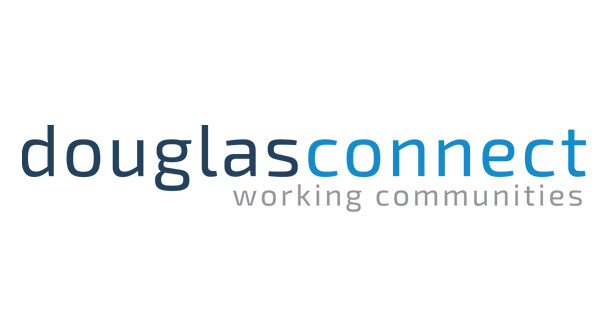 Douglas Connect Douglas Connect (DC) have many years' experience in scientific research, informatics, education and marketing, and have been involved in organising scientific, communication and knowledge management projects and solutions since 1995. DC is a Swiss SME based close to Basel, a heart of European chemical, pharmaceutical and biotechnology life in the Biovalley region.
Douglas Connect Douglas Connect (DC) have many years' experience in scientific research, informatics, education and marketing, and have been involved in organising scientific, communication and knowledge management projects and solutions since 1995. DC is a Swiss SME based close to Basel, a heart of European chemical, pharmaceutical and biotechnology life in the Biovalley region.
DC specialises in R&D communities and networks, collaboration solutions, and consulting and training on topics of relevance to the chemical, pharmaceutical and healthcare industry. DC served as Project Coordinator of OpenTox which developed an Open Source Predictive Toxicology Framework for the management of toxicology data, models and validation, and was funded under the EC’s Seventh Framework Program: HEALTH-2007-1.3-3 Promotion, development, validation, acceptance and implementation of QSARs (Quantitative Structure-Activity Relationships) for toxicology, Project Reference Number Health-F5-2008-200787 (2008-2011).
DC is the Scientific Coordinator of the ToxBank infrastructure development project. DC is leading research activities in antimalarial drug design and toxicology for the Scientists Against Malaria project which was developed from a pilot within the SYNERGY FP7 ICT project on knowledge-oriented collaboration. DC directs the program activities of the InnovationWell and eCheminfo communities of practice which have goals and activities aimed at improving human health and safety and developing new solutions for neglected diseases.
Coordinator of the project, requirements analysis, user applications, testing, case studies, dissemination
Dr. Barry Hardy coordinated the OpenTox FP7 project. He led the requirements analysis and pilot execution for the FP7-funded SYNERGY project (www.synergy-ist.eu) on knowledge-oriented collaboration. He currently is coordinating the infrastructure development activities of the FP7 ToxBank project.
Dr. Barry Hardy founded the eCheminfo and InnovationWell community activities of Douglas Connect, Switzerland. He obtained his Ph.D. in 1990 from Syracuse University working in the area of computational chemistry, biophysics and computer-aided molecular modelling and drug design. Dr. Hardy has developed technology solutions for internet-based conferencing, tutor-supported e-learning, laboratory automation systems and computational chemistry and informatics. Dr. Hardy was a National Research Fellow at the FDA Center for Biologics and Evaluation, a Hitchings-Elion Fellow at Oxford University and CEO of Virtual Environments International. Within OpenTox he has been leading the development of an open, interoperable, semantic web platform whose goal is to satisfy the needs of safety assessment through the creation of applications linking resources together for data, algorithms, models and ontologies. As described in the recent ALTEX papers (3,4) he is motivating an international collaboration to develop an open, robust, well-maintained ontology for this field, supporting the reliable use of data and concepts required for integrated analysis (5).
|
1)
|
Hardy, B. et al, Collaborative Development of Predictive Toxicology Applications, Journal of Cheminformatics 2010, 2:7, 31 August 2010.2) |
|
2)
|
Hardy, B; The Growing Significance of Communities & Collaboration in Discovery & Development, Future Medicinal Chemistry, Vol 1, Issue 2, Spring 2009. |
|
3)
|
Hardy, B., Apic, G., Carthew, P., et al. (2012). A toxicology ontology roadmap. ALTEX 29, 129-137. |
|
4)
|
Hardy, B., Apic, G., Carthew, P., et al. (2012). Toxicology ontology perspectives. ALTEX 29, 139-156. |
|
5)
|
Kohonen, P., …, Hardy, B., “The ToxBank Data Warehouse: Supporting the Replacement of In Vivo Repeated Dose Systemic Toxicity Testing”, Molecular Informatics, Special Issue: Advances in Computational Toxicology, (2013), Volume 32, Issue 1, 47–63. http://onlinelibrary.wiley.com/doi/10.1002/minf.201200114/abstract |
